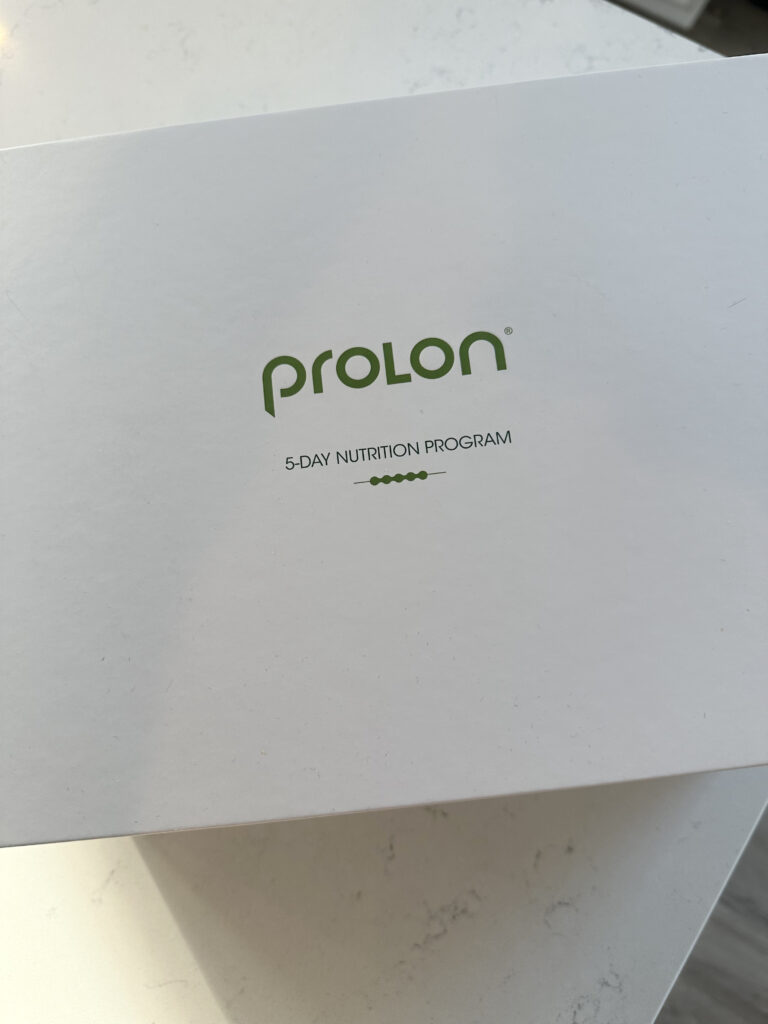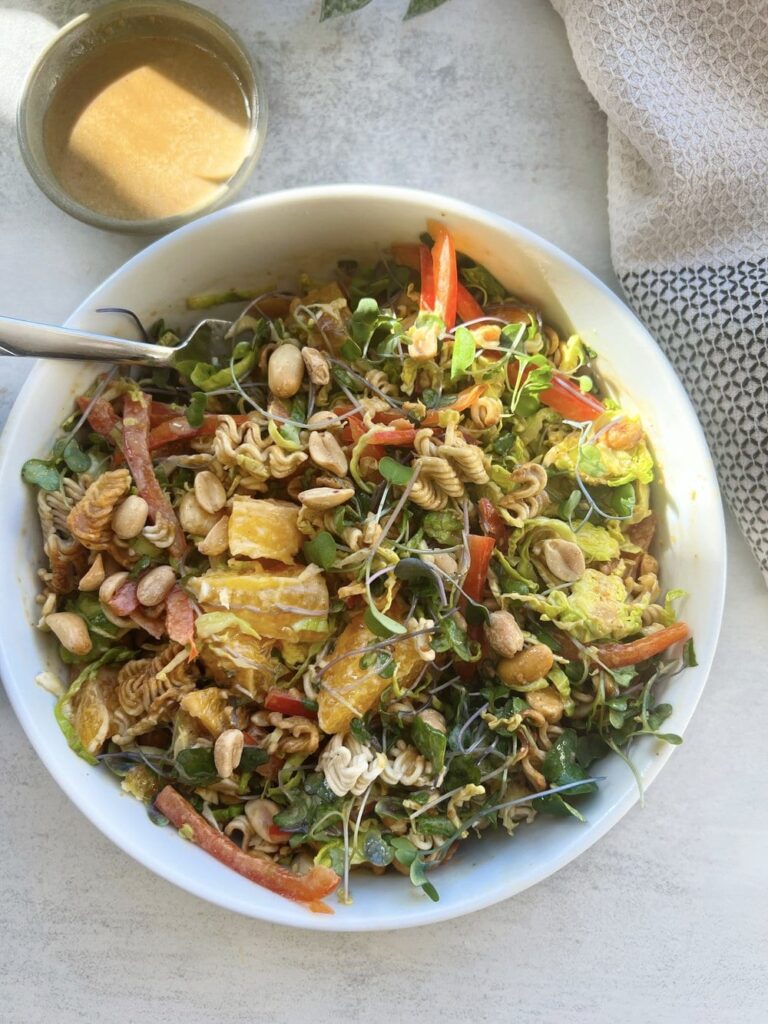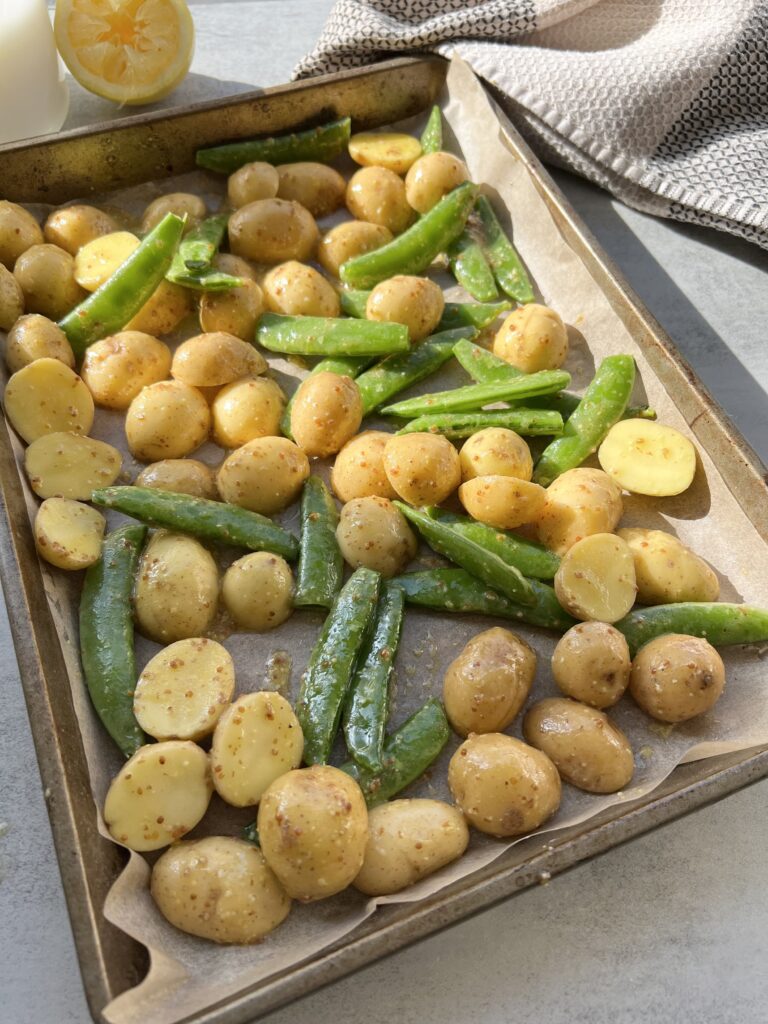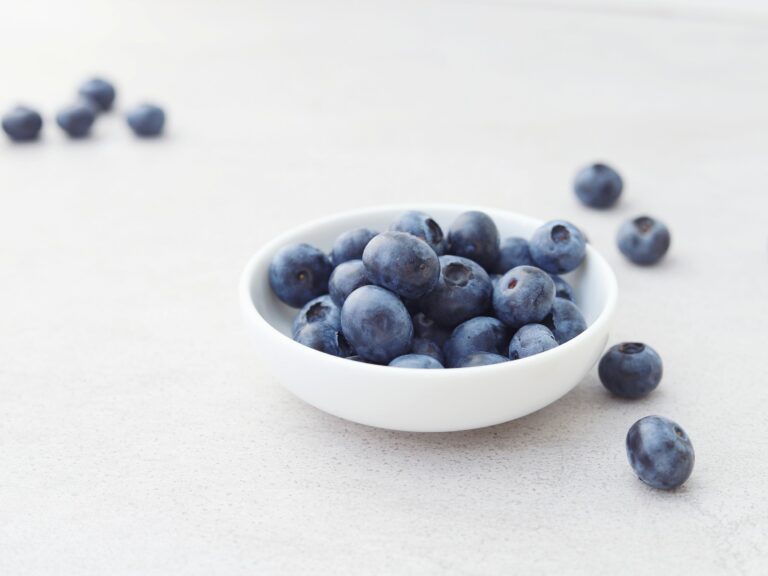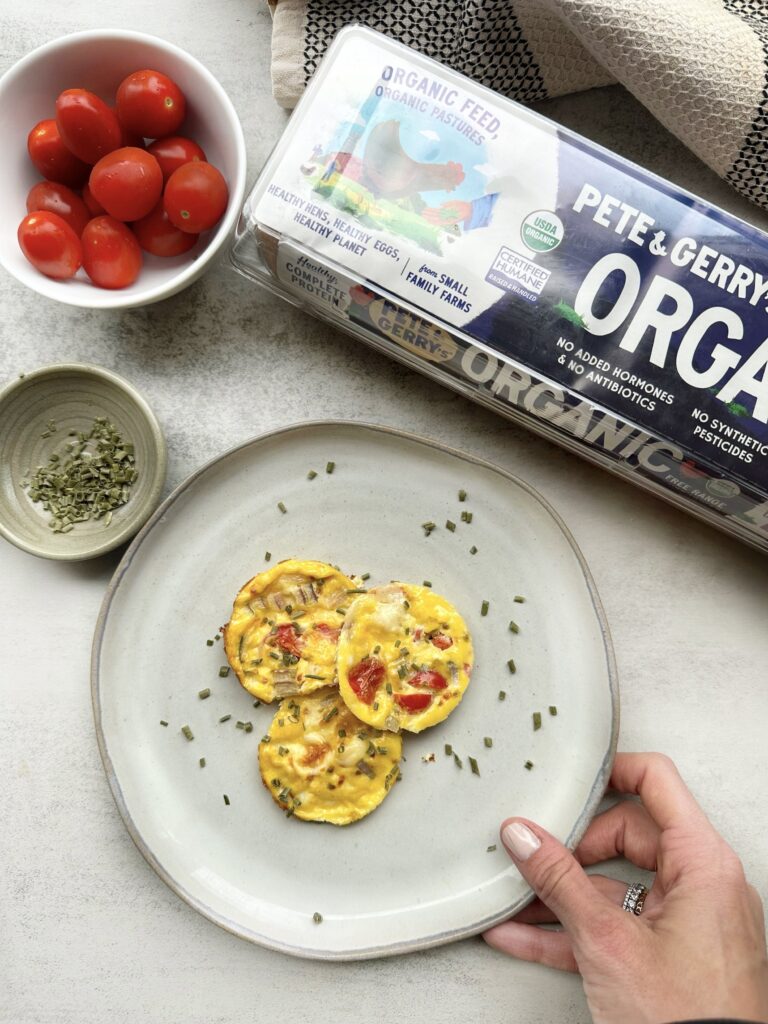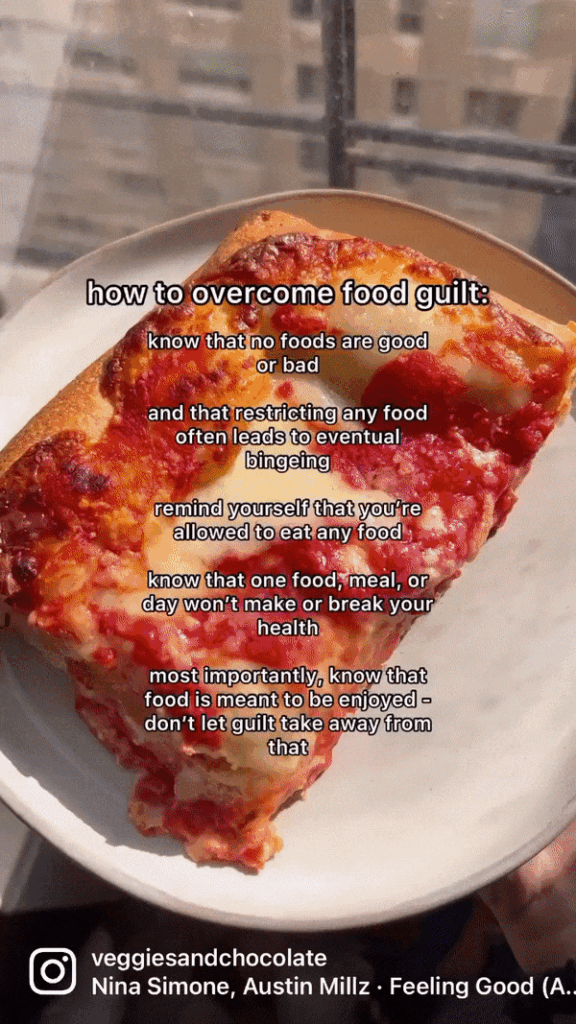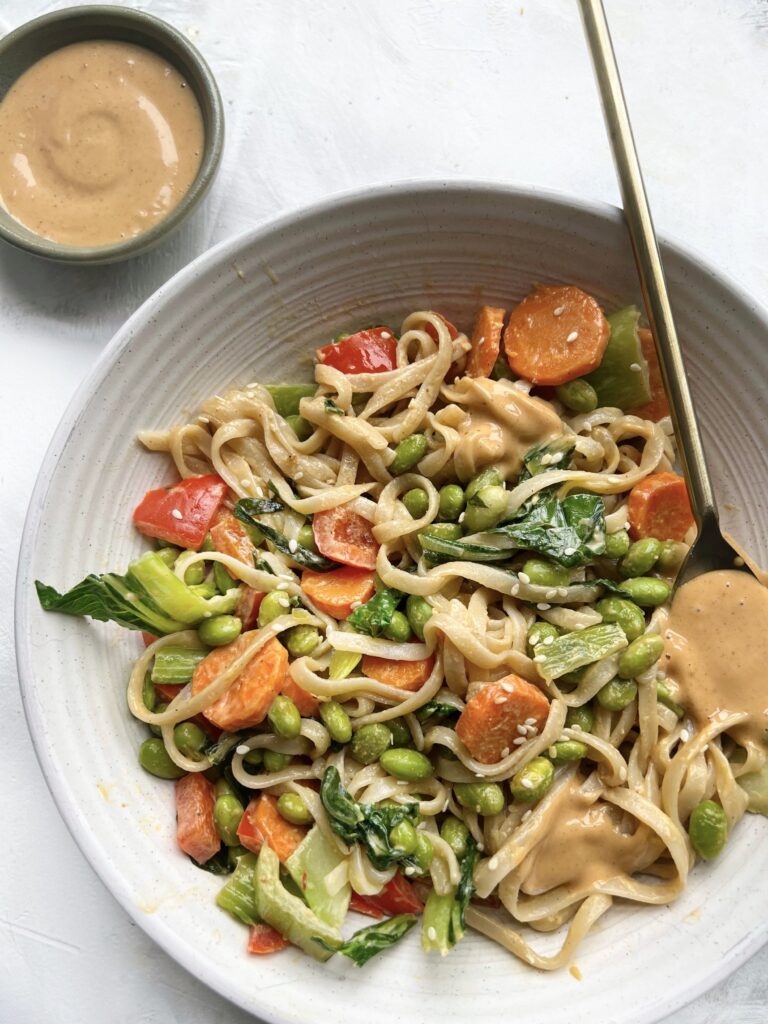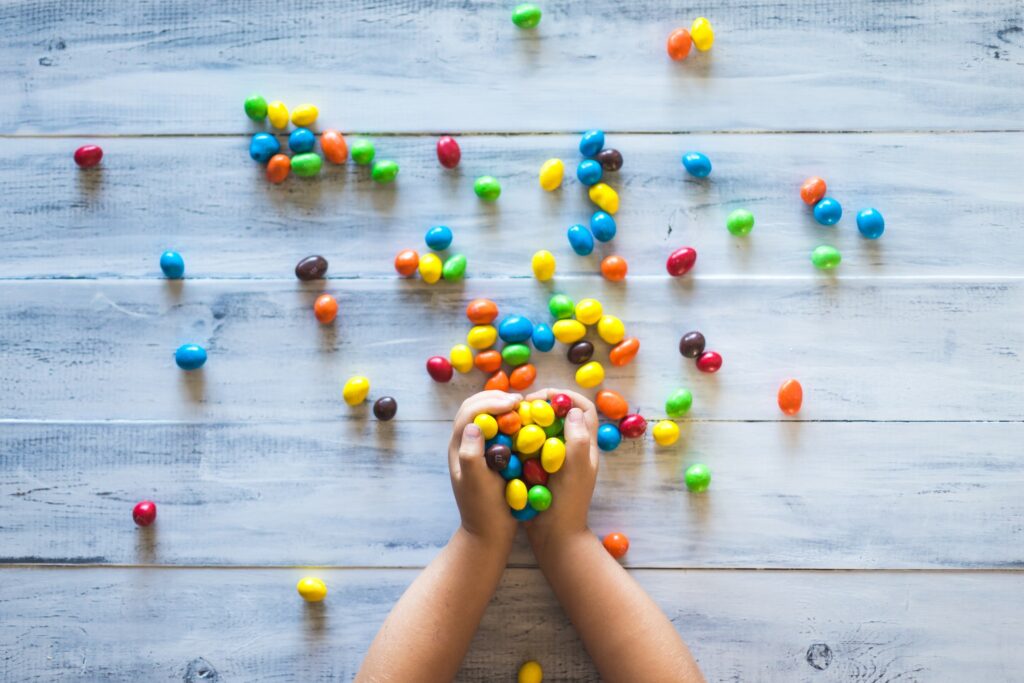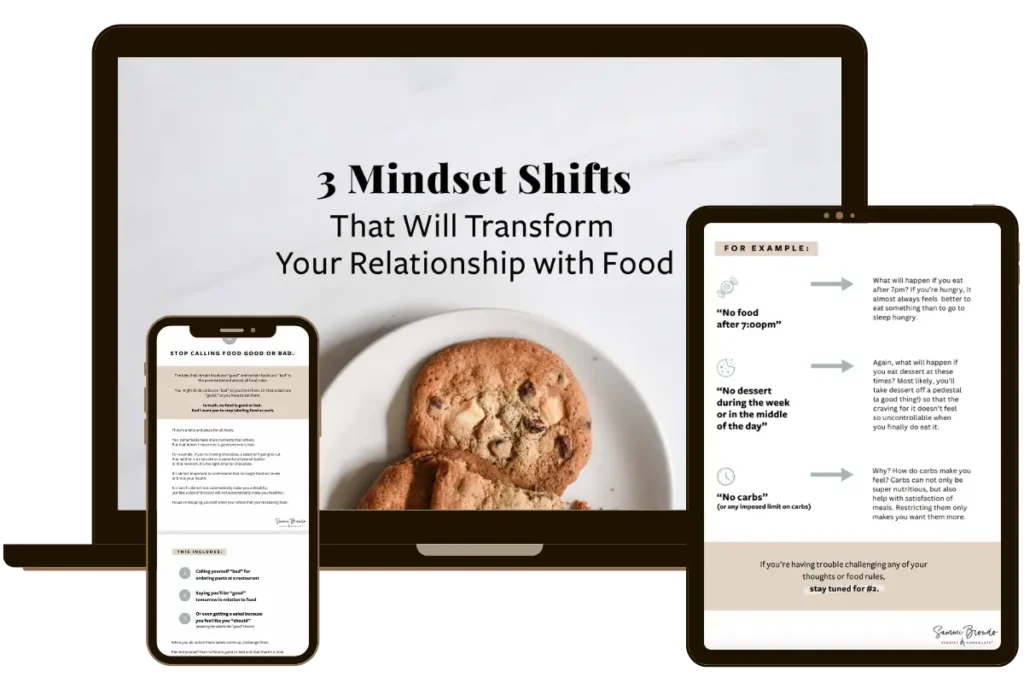How to Stop Obsessing About Weight While Working Towards Food Freedom
By Sammi Brondo — July 24, 2024
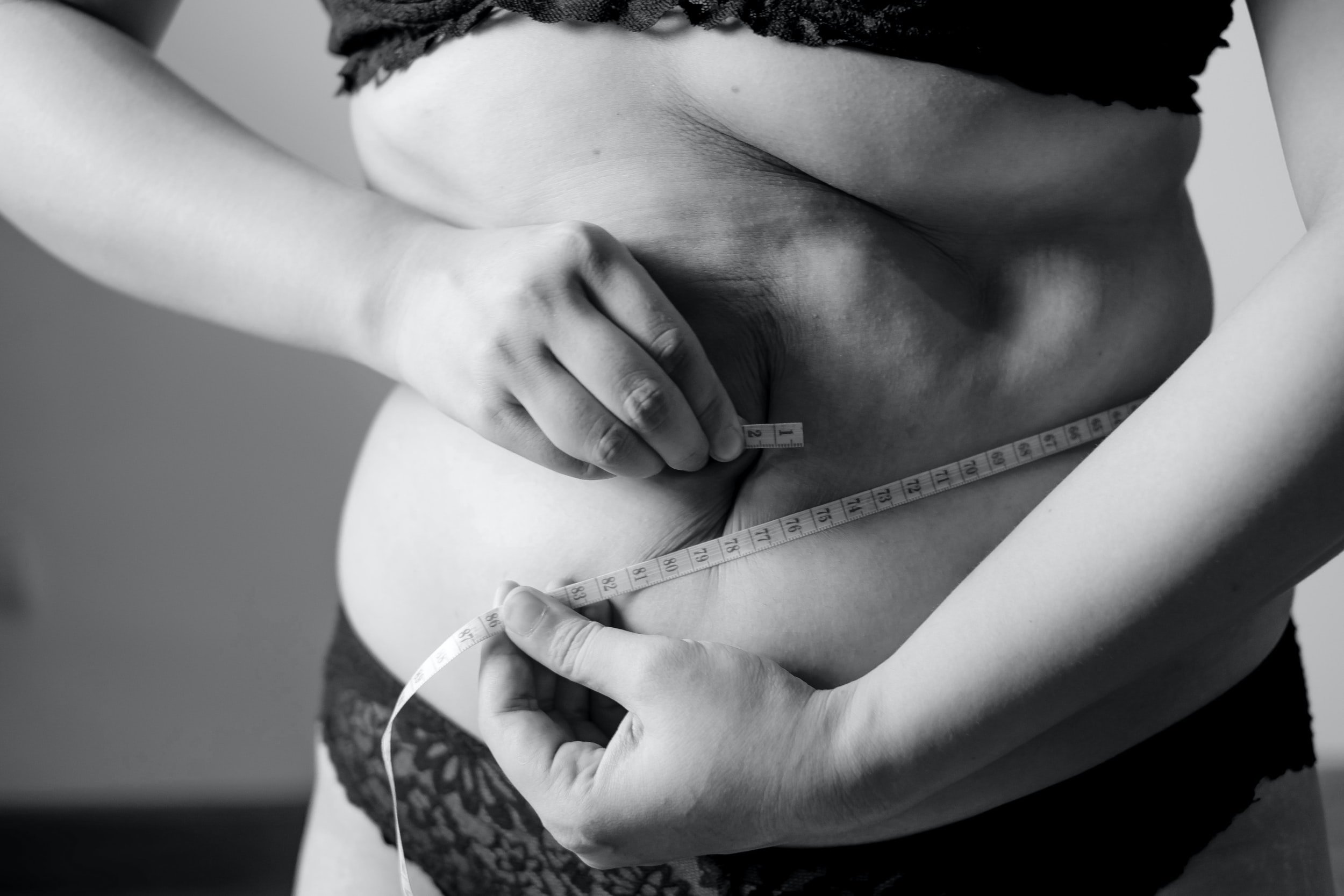
Arguably one of the harder parts about working on your relationship with food is letting go of the focus on weight. But, we have to stop obsessing over our weight in order to truly create a healthy relationship with food.
FIRST THINGS FIRST:
if you can’t get over the feeling of wanting to lose weight, please know that these feelings are totally valid.
We live in a society that places wayyy too much emphasis on thin bodies. It makes sense if you’ve been made to feel like you have to shrink your body.
But, I promise, you don’t.
Not only does the size of your body have nothing to do with your qualities as a person, but it also has nothing to do with your overall health. It’s very possible to be healthy in a larger body and even to be unhealthy in a smaller body.
Body size does not equal health.
But also, it’s really important to let go of the intentional pursuit of weight loss while working on your relationship with food.
A healthy relationship with food involves looking inward: using your body’s hunger and fullness cues and taste preferences to determine what to eat.
Focusing on weight often distracts us from these internal cues. Thoughts about our weight or bodies get in the way and, instead of choosing a food because it sounds good, you might instead start to question its serving size or calories or ingredient list.
In order to heal your relationship with food, you have to fully let go of the pursuit of weight loss (more on that in this blog post).
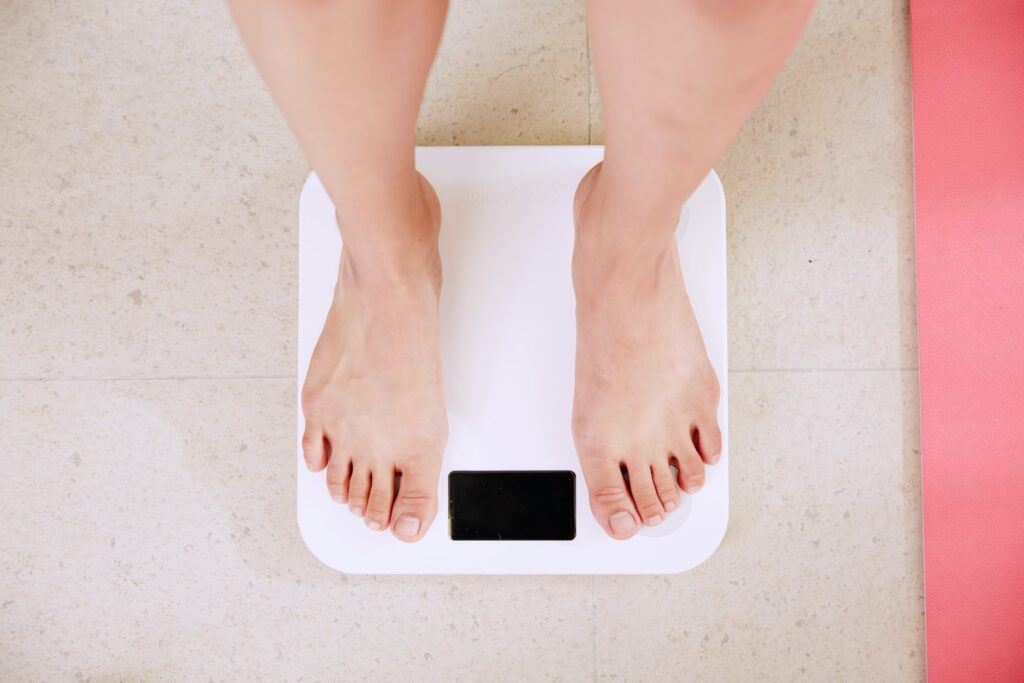
If no longer thinking about your weight sounds impossible, keep reading.
1. Put away the scale.
I know this may sound like common sense, but if your scale is out and in plain view, put it away.
It’s okay if you’re not quite ready to throw it out (although eventually, this is a great goal to have!). Instead of leaving it out on your bathroom floor, push it to the back of a cabinet.
When your scale isn’t one of the first things you see in your bathroom every day, it’s easier to resist the temptation to step on it.
The ultimate goal is to stop weighing yourself – at least for now.
Weight is one, single number that can have a massive impact on our eating and mindset around food.
While working on your relationship with food, I want you to focus on yourself and how you feel – not your weight.
If you weigh yourself daily, try to gradually limit it to once a week. Then, to once every other week and eventually, to a once a month.
Over time, see if you can phase out weighing yourself at all.

2. Focus on how you feel.
This can be such a hard one to wrap your head around. After all, diet culture tells us the scale is the best way to measure any and all progress.
But, instead of using the scale, focus on how you feel.
How does it feel to listen to your body and eat what sounds good instead of micromanaging everything you eat?
Is it more enjoyable to go to brunch with friends, knowing you can eat what sounds good on the menu? Are you able to enjoy your meals more when you don’t feel guilty or feel like you have to run to the gym afterwards?
And, do you find that once you’ve satisfied cravings, you start to crave a mix of different foods, including *gasp* salads?
The answers to these might not be yes right now, but hopefully, they soon will be.
Working on your relationship with food isn’t as tangible as a number on the scale, but the results are so much more powerful.
You can control every single morsel of food you eat to maintain a certain weight or you can simply let go.
I know it sounds scary, but again, focus on how you feel. Imagine responding “yes” to all of those questions. When you take away the focus on weight, you’re much more easily able to do so.
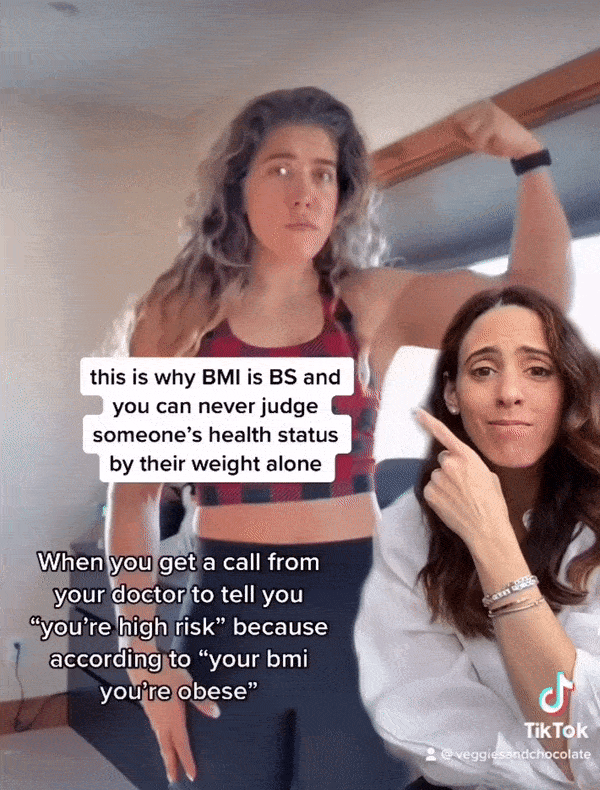
3. Know that the healthiest weight for you is the one that you can comfortably maintain.
I think one of the biggest loads of BS I learned in grad school was the concept of “ideal body weight.”
Like BMI, this is one of many numbers that’s sadly still used by many practitioners but is also outdated and not rooted in science.
We are all different and there’s no ideal body weight that’s universal for every person of the same height.
Your personal healthiest weight is the weight at which you can maintain comfortably, while eating foods you love and without micromanaging what you eat.
When you finally foster a healthy relationship with food, your diet will vary. You’ll naturally crave a mix of nutritious and less nutritious foods.
Our bodies want to feel good physically – and that includes eating foods that are nutritious and also eating foods that are mentally satisfying.
It also means eating to a point of comfortable fullness, with less under- and overeating.
When you do finally eat in this way, not only will your weight go where it’s most naturally comfortable but also, you’ll likely be more physically healthy overall.
Some of the healthiest things you can do for yourself are to eat a balanced, varied diet and minimize stress – including stress around food.
Creating a healthy relationship with food is an amazing way to work on your overall health, regardless of your body weight.

At the end of the day, try to ask yourself this: is it worth micromanaging every single thing you eat to weigh 5, 15 or even 50 pounds less?
Only you know the answer to that.
What I can tell you is that your friends aren’t friends with you because of how much you weigh.
The size of your body is truly the least interesting thing about you.
And it’s definitely not worth missing out on so much of life for the sake of weight loss.

